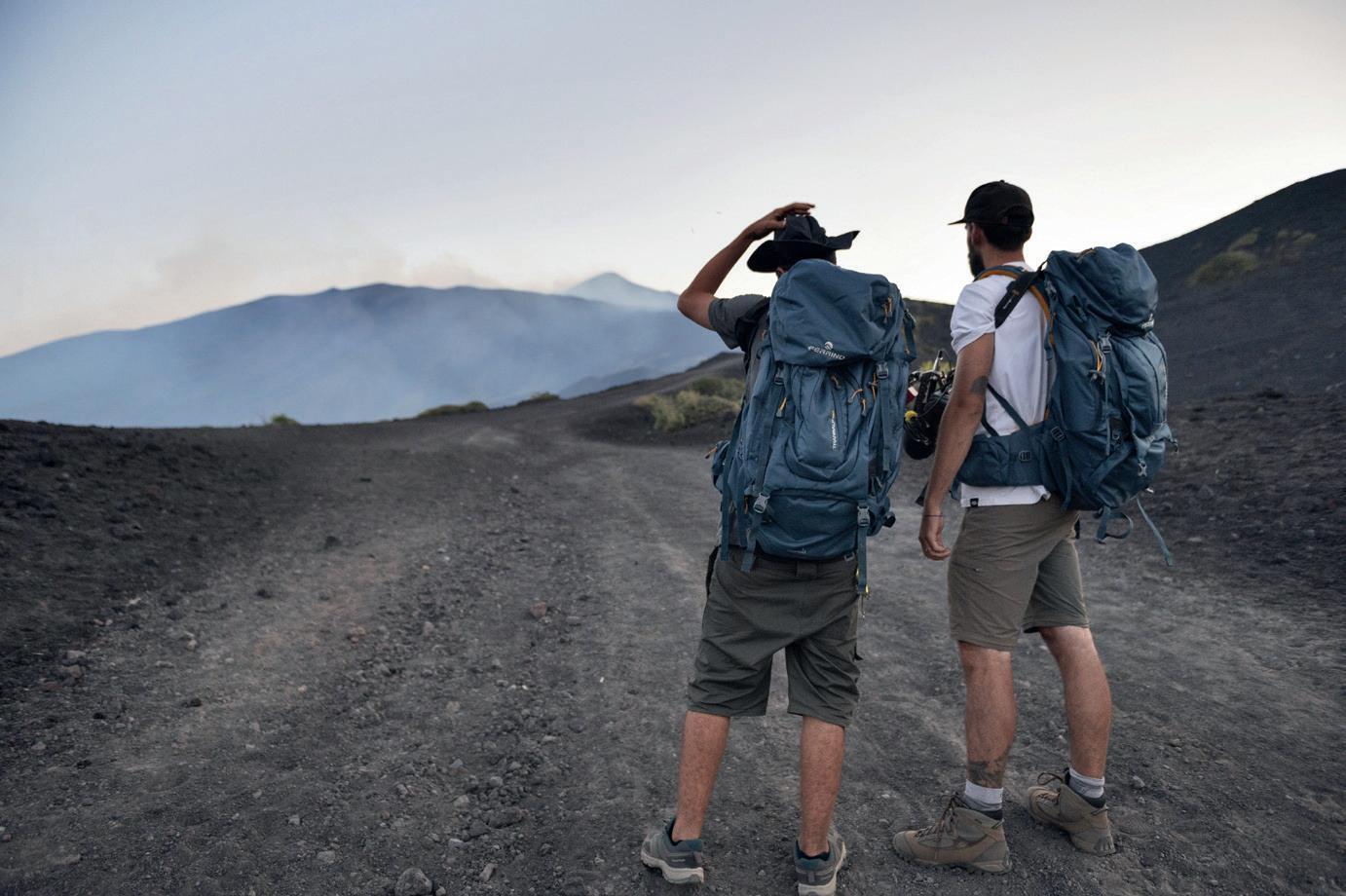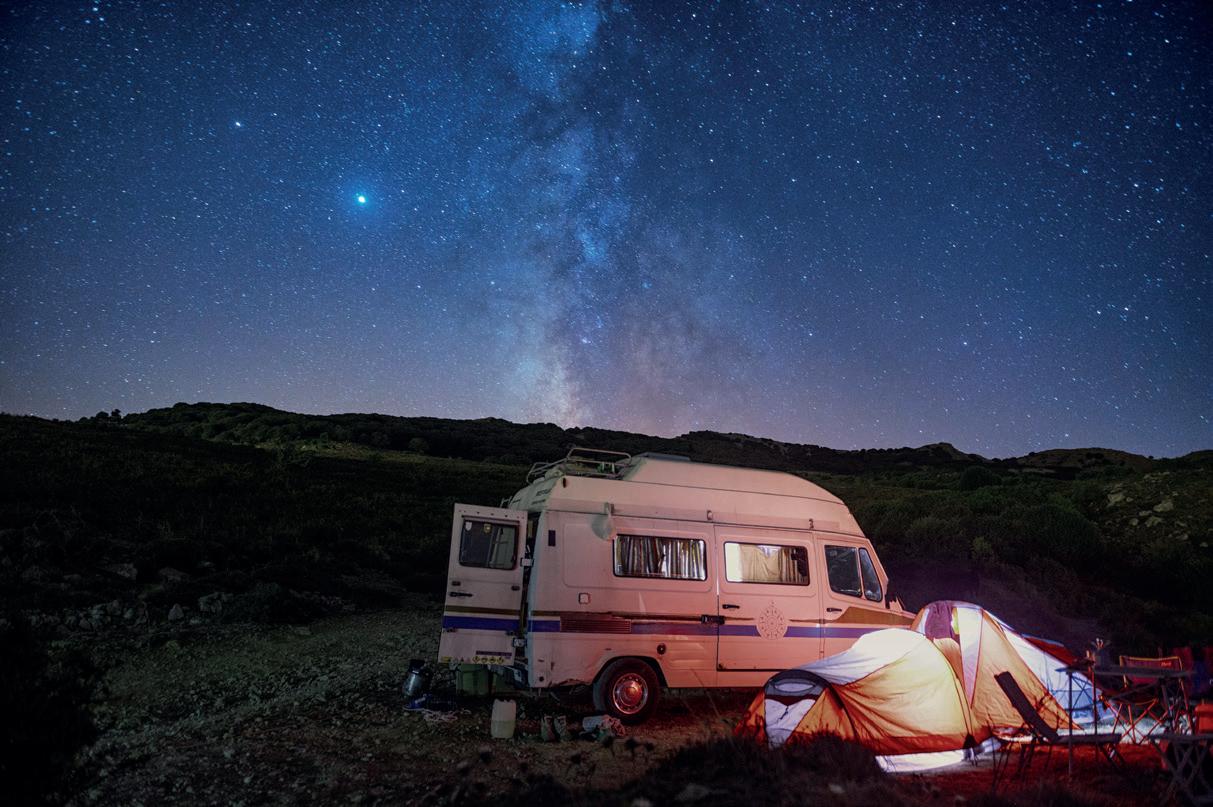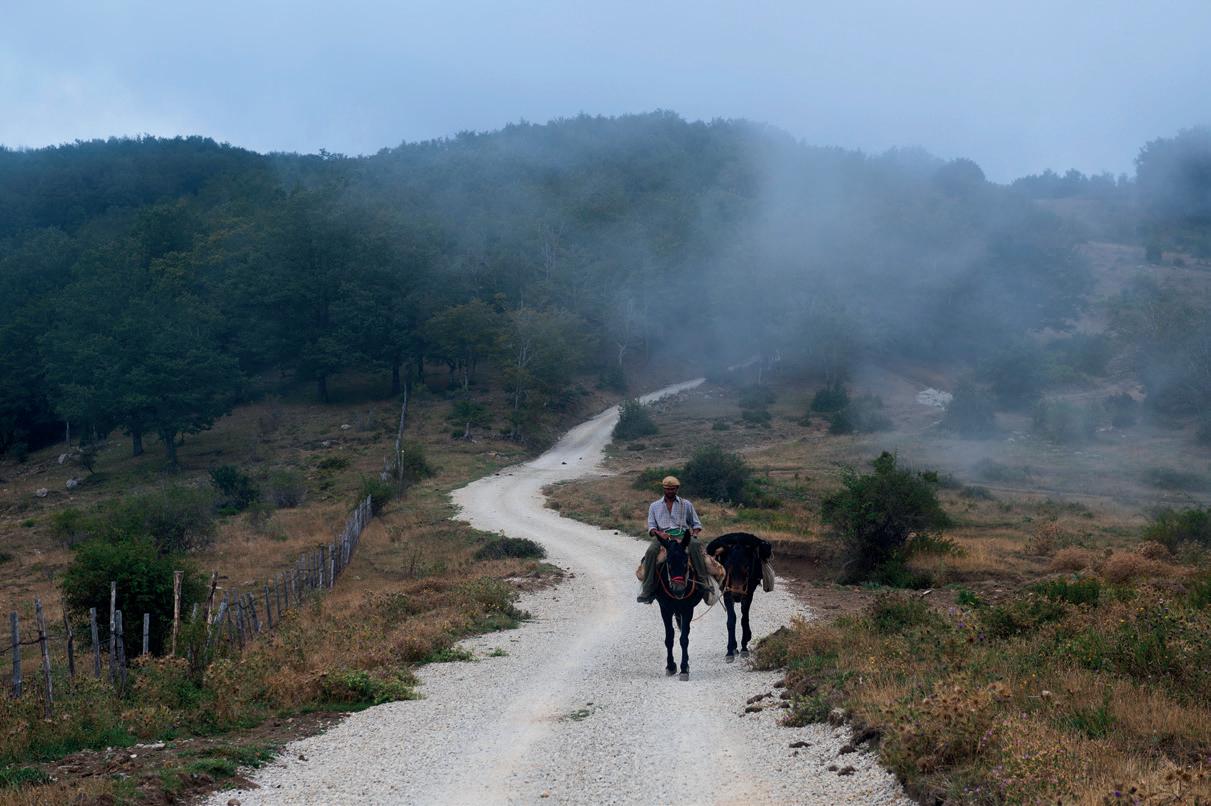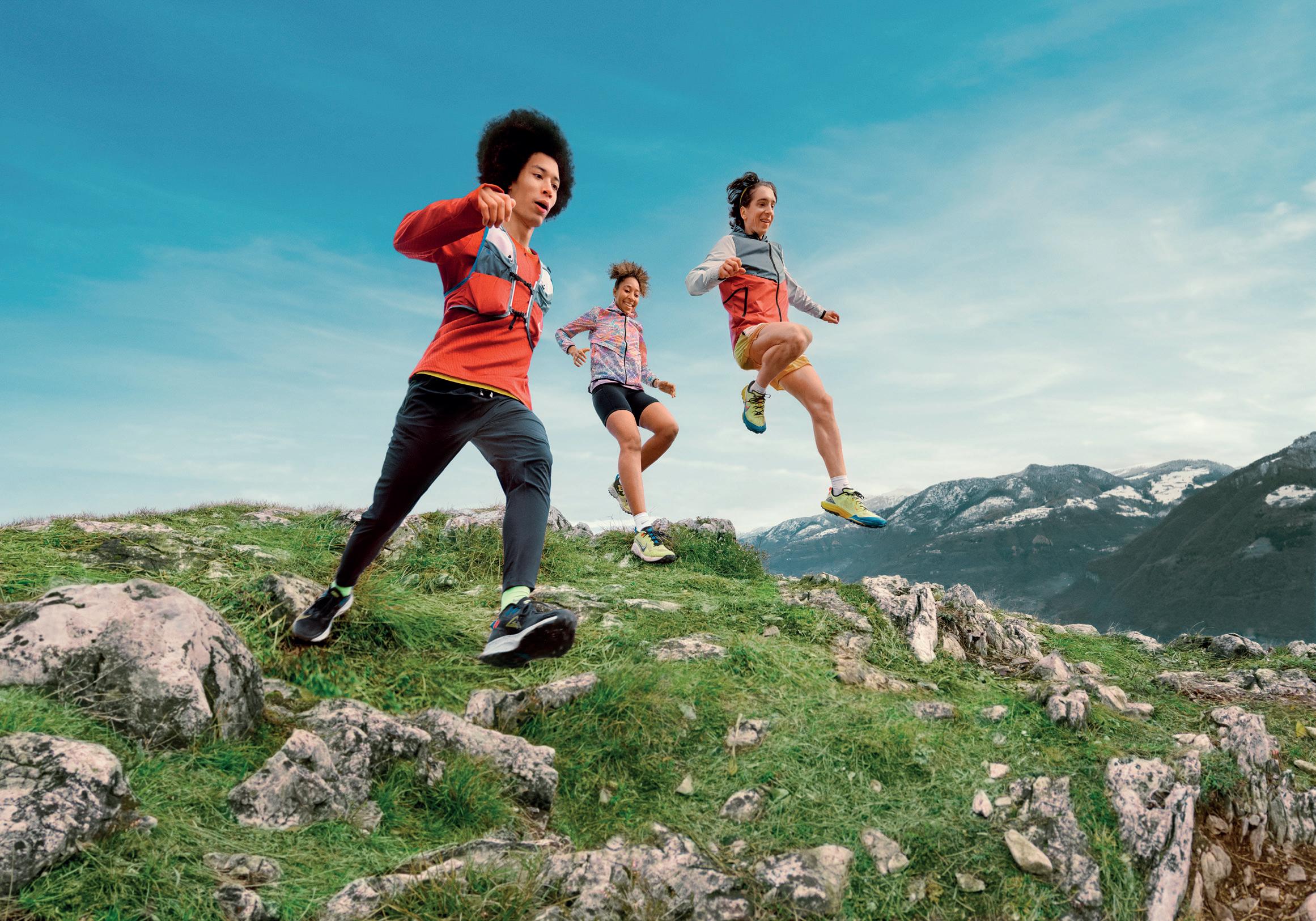
5 minute read
WOODVIVORS
by The Pill
BY SILVIA GALLIANI
“Woodvivors - L'Italia a passo di mulo” is a project born in 2016 from an idea of Francesco Paolo Lanzino. Departing these days from Pantelleria, the 2500km long adventure, would like to tell the rural world, its cultures, traditions and lifestyles and its struggle for survival, collecting testimonies from those who led a simple life but full of sacrifices and limitations.
A 6-month journey from Sicily to Turin following the Sentiero Italia, strictly unsupported and on foot or by mule. A real dive into the past that will result in a docufilm that will tell the story of the journey, but also the ancient knowledge of the Italian rural world to stimulate a new interest in local practices and to build a sustainable future rooted in our heritage.
Where did the idea of Woodvivors come from? What’s its goal? And why a mule? I have been practicing outdoor sports since I was little, I have been in the national sailing team and I have competed for many years at a competitive level. On the other hand, the mountain for me represented a moment of relief and taught me how to move outdoors. In Sicily 10-15 years ago there were no huts or well-marked trails, so I have always moved unsupported. In 2017 I had 6 months free and I decided to cover the whole Sentiero Italia that connects Sicily to Piedmont with a mule as my only travel companion. On the third day, despite walking on my home streets, I felt like I was passing through unknown places. The mule was a real time machine that allowed me to get to know the elderly people I met along the way in an empathic and spontaneous way. The goal is precisely this: to come in contact with that almost forgotten world that still exists, before it's too late. A real journey into the past to give life to ideas that can help us build a more sustainable future.
Trekking and rediscovery and redevelopment of the suburban areas. How do these two aspects go hand in hand? In the suburbs very often there are shortages in terms of roads and infrastructures. Arriving on foot you not only connect these places by creating a sort of map but you can also create an economy of exchanges and trade between the various territories, giving life at the same time to a kind of tourism that would like to visit these places in a slower and more symbiotic way.
Can you tell us what will be the stages of the journey? We are leaving the island of Pantelleria in these days. We will cross Sicily fairly quickly and once we arrive in Calabria we will continue on the Sentiero Italia reaching the Aspromonte Park, Sila and Pollino, entering Basilicata and climbing up to Campania. After a short day in Lazio, it will be the turn of the Abbruzzo National Park, Gran Sasso and the Sibillini Mountains. Then Umbria, Marche, the Appennino Tosco-Emiliano Park, Liguria and finally Piedmont. We will arrive in Turin, one of the first industrialized cities in Italy and therefore a symbolical arrival point of the migration that came from the countryside to the city.

Do you have any doubt or fear? Is there something that scares you? I'm leaving with a lot of question marks. I think the thing that scares me the most is the management of the group. Six people travelling together for six months with a hectic pace of work, many kilometers every day, few services. The thing that matters to me is to be able to leave and arrive all together, but I'm pretty confident about it. The journey will obviously be dictated by the rhythms of our animals which are our top priority, moreover the trails of Southern Italy are complicated, you often travel along paths that you then find closed by unauthorized private gates and therefore you are forced to go back!
Where are you planning to sleep? Are you going to camp? What technical equipment did you choose for the project? There will be two separate teams. With me physically on foot there will always be 2/3 people and we will camp unsupported. The others will travel aboard a van that works as a production truck. We are all equipped with gears offered by our technical sponsor, Ferrino, who has provided us with everything we need both from the point of view of clothing and accommodation to face six months outdoors completely unsupported. I have always used Ferrino products and I am therefore very happy and proud to be able to count on them for this project.
In these times of restrictions and less freedom, many people have approached the mountains, rediscovering contact with nature in favor of slow and sustainable tourism. What do you think about it? I think that's true, I also see a decentralization of cities. Many people in the last year have preferred to move in the suburbs and this represents both a development and a strength for rural areas. Whether it is a question of slow tourism or of re-appropriation of time, the thing that in fact surprises the most when you arrive from a metropolis is to realize that you are the master of your own time.
More and more often we hear talking about about climate change. In your opinion, what can we do in our small way to protect the natural environments we love? I think we can and must learn a lot from our past. The world of 70 years ago was decidedly more eco-sustainable and indeed this word did not even exist.
Apart from that, everyone in their own small way can do a lot starting from the choice of the products we consume, boycotting the laws of the market and creating a true relationship between producer and consumer.
There is a lot of talk about ethical choices and for me the most important one is definitely to eat locally-grown food, a lifestyle that greatly influences the development of natural environments and their protection.
What will be the first thing you’ll do once you arrive in Turin? I never thought about it. I think I’ll take a shower! Then I’ll have a beer. Or maybe the other way around.












